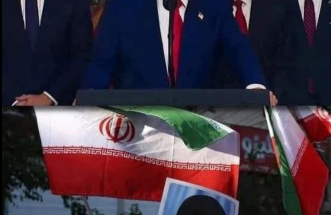
An Overlooked Piece of History
History, as we are taught, is often a carefully curated tapestry. It highlights towering figures, decisive battles, groundbreaking inventions, and transformative revolutions. Yet for every celebrated chapter, there exist countless overlooked pages—moments, communities, and contributions that never make it into the textbooks but profoundly shaped the world we live in. These hidden histories, sometimes suppressed and sometimes simply forgotten, deserve a second look.
Why Histories Go Overlooked
Before diving into examples, it’s worth asking: why do some stories rise to prominence while others remain in the shadows?
The answer often lies in power. History has long been written by those who prevailed—political leaders, ruling classes, and dominant cultures. Their narratives naturally center their achievements and perspectives. Meanwhile, the voices of marginalized groups—indigenous peoples, women, laborers, enslaved individuals, and ethnic minorities—were frequently excluded.
Another factor is practicality. Human history spans thousands of years across every corner of the globe. No curriculum, no matter how comprehensive, can cover it all. Choices must be made, and in the process, certain events are deemed less essential. The danger is that this process reinforces existing biases, giving us a skewed picture of the past.
The Tulsa Race Massacre
One powerful example of overlooked history in the United States is the Tulsa Race Massacre of 1921. For decades, the destruction of Tulsa’s thriving Black neighborhood, Greenwood—often called “Black Wall Street”—was scarcely mentioned in history books.
What happened was both shocking and tragic: a false accusation against a young Black man triggered a white mob to storm Greenwood, burning homes and businesses, killing an untold number of residents, and displacing thousands. For nearly a century, survivors and their descendants carried the memory, while institutions largely ignored it. Only recently has the massacre entered mainstream discussion, reminding us how easily profound injustice can be hidden from collective memory.
The Hidden Role of Women in Science
Consider also the contributions of women in science. Names like Newton, Einstein, and Darwin dominate our narratives, yet many female pioneers worked in the shadows. Rosalind Franklin’s X-ray crystallography was central to discovering the DNA double helix, but credit went mainly to Watson and Crick. Katherine Johnson, Dorothy Vaughan, and Mary Jackson—African American mathematicians at NASA—played pivotal roles in the space race, but their contributions were only widely recognized decades later.
The erasure of women’s achievements is not just an injustice to them individually; it skews our understanding of progress itself, making it seem as though only a narrow group of people propelled humanity forward, when in fact knowledge has always been collective.
Forgotten Indigenous Civilizations
Globally, overlooked history often means ignoring indigenous cultures that flourished long before European colonization. In the Americas, school lessons frequently begin with Columbus in 1492, skipping over the fact that complex civilizations—Maya, Inca, Aztec, Mississippian mound builders—already thrived.
The Mississippian city of Cahokia, near present-day St. Louis, was once larger than London in 1250 CE. With enormous earthworks, complex trade networks, and a population in the tens of thousands, Cahokia was a true urban center. Yet for generations, its existence was downplayed, as early archaeologists could not reconcile advanced city-building with their preconceived notions about Native Americans.
The same pattern repeats worldwide: from the Nubian kingdoms of Africa, which rivaled ancient Egypt, to the thriving trade of the Swahili Coast, to the advanced maritime navigation of Pacific Islanders long before Europeans set sail.
Labor Movements and Ordinary Workers
Another overlooked layer of history involves the struggles of everyday workers. Industrialization is often told through the lens of great inventors and captains of industry, but behind every factory stood thousands of laborers fighting for fair wages, shorter hours, and safer conditions.
The stories of textile workers in Lowell, Massachusetts, coal miners in West Virginia, and garment workers in Bangladesh reveal the hidden costs of progress. The eight-hour workday, child labor laws, and basic workplace protections were not gifts from above—they were won through protest, strikes, and often bloodshed. Remembering these struggles underscores that social and economic progress is rarely inevitable; it is fought for.
The Influence of Lesser-Known Nations
Global history, especially in Western education, tends to revolve around Europe, the United States, and a handful of Asian powers. Yet smaller nations have often played outsized roles.
Take Haiti, for instance. The Haitian Revolution (1791–1804) was the first successful slave revolt in history, leading to the world’s first Black republic. Its impact rippled far beyond the Caribbean, influencing debates on slavery, colonialism, and freedom. Yet for generations, Haiti’s revolution was minimized or cast as chaos, largely because its success challenged prevailing racial and colonial hierarchies.
Or consider Ethiopia, one of the only African nations to successfully resist European colonization during the Scramble for Africa. The Battle of Adwa in 1896, where Ethiopian forces defeated Italy, was a symbol of anti-imperialist resistance worldwide. Still, it is often relegated to a footnote in global history surveys.
The Importance of Memory
When pieces of history are overlooked, societies lose more than facts—they lose context and perspective. Forgetting the role of marginalized groups, for instance, makes it easier to justify inequality in the present. Neglecting past atrocities risks allowing them to repeat. Dismissing indigenous achievements diminishes cultural pride and identity.
Recovering overlooked histories, then, is not merely academic. It is an act of justice, of broadening our understanding of humanity’s shared past. It allows people to see themselves in the historical record, and it prevents powerful groups from monopolizing the story of progress.
How Overlooked Histories Resurface
Fortunately, overlooked histories rarely remain buried forever. Survivors, descendants, activists, and scholars work tirelessly to bring them back into the light. Oral traditions preserve memories where written records are absent. Archaeological discoveries reshape narratives once thought settled. Popular culture—from films to novels—sometimes opens doors that academia long kept closed.
For example, the movie Hidden Figures catapulted NASA’s Black female mathematicians into public awareness. Similarly, recent museum exhibits on indigenous art and history challenge old stereotypes by showcasing the sophistication and beauty of pre-colonial societies.
Digital archives and social media have also become powerful tools, allowing communities to share their histories without relying on traditional gatekeepers.
The Work Ahead
Yet much work remains. Education systems must continue to expand curricula to reflect diversity. Media and entertainment industries can highlight untold stories, amplifying forgotten voices. And individuals, too, have a role—by reading widely, questioning narratives, and seeking perspectives beyond the familiar.
The goal is not to diminish the importance of well-known figures and events but to enrich the historical record, making it more honest and inclusive. When we weave together both the celebrated and the overlooked, we gain a fuller picture of the human story.
Conclusion: Shining Light on the Forgotten
An overlooked piece of history is not just a missing fact—it is often a missing perspective, a silenced voice, or a disregarded struggle. By recovering these stories, we honor those who lived them and better understand ourselves.
History is not fixed; it is alive, constantly reshaped as new evidence and voices emerge. The overlooked does not have to remain hidden. It only requires curiosity, empathy, and the courage to ask whose story has not yet been told.
In the end, what we choose to remember says as much about us as it does about the past. To embrace overlooked histories is to embrace truth, complexity, and the richness of human experience.

